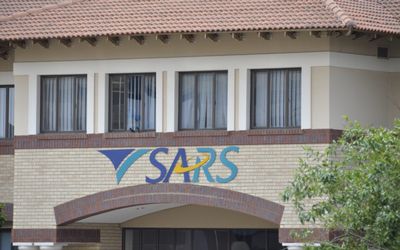TAX AND FOREIGN EXCHANGE AMNESTY: Another chance to come clean on assets kept abroad
by Linda Ensor and Moyagabo Maake,
2016-02-25 06:10:01.0
TAX AND FOREIGN EXCHANGE AMNESTY: Another chance to come clean on assets kept abroad
THE Treasury and Reserve Bank are offering a six-month period between October 1 and March 31 for those with undeclared offshore income and assets to regularise their affairs.
It is difficult for the Treasury to estimate the tax revenue to be derived from the initiative, but officials estimate it conservatively at between R2bn and R4bn.
The special voluntary disclosure programme announced by Finance Minister Pravin Gordhan in his budget speech on Wednesday will apply to individuals and companies but not to trusts in general.
The Treasury warned in an explanatory statement of the programme that with new global standards for the automatic exchange of information between tax authorities coming into force next year, "time is now running out for taxpayers who still have undisclosed assets abroad".
In terms of the offer, the South African Revenue Service (SARS) will only include 50% of the total amount used to fund the acquisition of undeclared offshore assets acquired before March 1 2015 in taxable income and subject to normal tax.
Only those investment returns accrued from offshore assets from March 1 2010 onwards will be included in taxable income and will be subject to normal tax. Investment returns prior to March 1 2010 will be exempt.
Interest on tax debts arising from the disclosure will only commence from March 1 2010.
No understatement penalties will be imposed and neither will SARS pursue criminal prosecution for disclosed tax offences.
PwC tax policy leader Kyle Mandy said it was difficult to estimate how much revenue could be raised from the tax amnesty, but it could run into "a few billion rand".
"My initial reaction is that the tax element of the proposed amnesty is very generous, particularly considering the relief already afforded by the tax VDP (voluntary disclosure programme), which provides relief for penalties and criminal sanction," he said.
"The proposed tax amnesty goes far further by eliminating tax on investment returns prior to March 1 2010 and 50% of the tax on the income used to fund the undeclared offshore assets. The exchange control aspects of the amnesty are welcomed as this was the biggest impediment to the regularisation of offshore assets."
Mr Mandy said Reserve Bank penalties of up to 50%, along with uncertainty surrounding the level of penalties, had impeded compliance.
Settlors donors, deceased estates or beneficiaries of foreign discretionary trusts can participate in the programme if they are willing to have the trust’s offshore assets and income to be deemed to be held by them.
The Bank’s financial surveillance department is simultaneously offering South African residents a chance to regularise their exchange control contraventions under the same programme. This will apply to contraventions prior to February 29 2016.
The Treasury has warned that those who do not avail themselves of the offer "may face the full force of the law".
"Applicants who are granted administrative relief in respect of unauthorised foreign assets and/or structures may have to pay a levy based on the current market value thereof as at February 29 2016," Treasury said in a media statement.
A levy of 5% will be imposed on the leviable amount if the regularised assets or the proceeds of selling them are repatriated to SA. A 10% levy on the leviable amount will be imposed if the regularised assets are kept offshore.
Another requirement is that the levy must be paid from foreign sourced funds.
"Where insufficient liquid foreign assets are available, an additional 2% will be added to the extent that local assets are utilized to settle the levy," the statement said.
"Individuals will not be allowed to deduct their R10m foreign capital allowance or any remaining portion thereof from any leviable amount and the levy may not be reduced by any fees or commissions," it said.
Treasury has warned that South African residents who do not apply for the exchange control relief under the special voluntary disclosure programme or do not make full disclosure outside of it, might have to pay a settlement ranging from 10% to 40% on the current market value of their unauthorised assets. The determination of the final settlement will depend on whether they elect to retain funds abroad or repatriate them back to SA.

In terms of the offer, the South African Revenue Service (SARS) will only include 50% of the total amount used to fund the acquisition of undeclared offshore assets acquired before March 1 2015 in taxable income and subject to normal tax. Picture: GALLO IMAGES/CHARLES GALLO
THE Treasury and Reserve Bank are offering a six-month period between October 1 and March 31 for those with undeclared offshore income and assets to regularise their affairs.
It is difficult for the Treasury to estimate the tax revenue to be derived from the initiative, but officials estimate it conservatively at between R2bn and R4bn.
The special voluntary disclosure programme announced by Finance Minister Pravin Gordhan in his budget speech on Wednesday will apply to individuals and companies but not to trusts in general.
The Treasury warned in an explanatory statement of the programme that with new global standards for the automatic exchange of information between tax authorities coming into force next year, "time is now running out for taxpayers who still have undisclosed assets abroad".
In terms of the offer, the South African Revenue Service (SARS) will only include 50% of the total amount used to fund the acquisition of undeclared offshore assets acquired before March 1 2015 in taxable income and subject to normal tax.
Only those investment returns accrued from offshore assets from March 1 2010 onwards will be included in taxable income and will be subject to normal tax. Investment returns prior to March 1 2010 will be exempt.
Interest on tax debts arising from the disclosure will only commence from March 1 2010.
No understatement penalties will be imposed and neither will SARS pursue criminal prosecution for disclosed tax offences.
PwC tax policy leader Kyle Mandy said it was difficult to estimate how much revenue could be raised from the tax amnesty, but it could run into "a few billion rand".
"My initial reaction is that the tax element of the proposed amnesty is very generous, particularly considering the relief already afforded by the tax VDP (voluntary disclosure programme), which provides relief for penalties and criminal sanction," he said.
"The proposed tax amnesty goes far further by eliminating tax on investment returns prior to March 1 2010 and 50% of the tax on the income used to fund the undeclared offshore assets. The exchange control aspects of the amnesty are welcomed as this was the biggest impediment to the regularisation of offshore assets."
Mr Mandy said Reserve Bank penalties of up to 50%, along with uncertainty surrounding the level of penalties, had impeded compliance.
Settlors donors, deceased estates or beneficiaries of foreign discretionary trusts can participate in the programme if they are willing to have the trust’s offshore assets and income to be deemed to be held by them.
The Bank’s financial surveillance department is simultaneously offering South African residents a chance to regularise their exchange control contraventions under the same programme. This will apply to contraventions prior to February 29 2016.
The Treasury has warned that those who do not avail themselves of the offer "may face the full force of the law".
"Applicants who are granted administrative relief in respect of unauthorised foreign assets and/or structures may have to pay a levy based on the current market value thereof as at February 29 2016," Treasury said in a media statement.
A levy of 5% will be imposed on the leviable amount if the regularised assets or the proceeds of selling them are repatriated to SA. A 10% levy on the leviable amount will be imposed if the regularised assets are kept offshore.
Another requirement is that the levy must be paid from foreign sourced funds.
"Where insufficient liquid foreign assets are available, an additional 2% will be added to the extent that local assets are utilized to settle the levy," the statement said.
"Individuals will not be allowed to deduct their R10m foreign capital allowance or any remaining portion thereof from any leviable amount and the levy may not be reduced by any fees or commissions," it said.
Treasury has warned that South African residents who do not apply for the exchange control relief under the special voluntary disclosure programme or do not make full disclosure outside of it, might have to pay a settlement ranging from 10% to 40% on the current market value of their unauthorised assets. The determination of the final settlement will depend on whether they elect to retain funds abroad or repatriate them back to SA.













 News, views and analysis of Finance Minister Pravin Gordhan's 2016 budget
News, views and analysis of Finance Minister Pravin Gordhan's 2016 budget










Change: 1.19%
Change: 1.36%
Change: 2.19%
Change: 1.49%
Change: -0.77%
Data supplied by Profile Data
Change: -0.19%
Change: 0.69%
Change: 1.19%
Change: 0.00%
Change: 0.44%
Data supplied by Profile Data
Change: 0.62%
Change: 0.61%
Change: 0.23%
Change: 0.52%
Change: 0.12%
Data supplied by Profile Data
Change: -0.21%
Change: -1.22%
Change: -0.69%
Change: -0.51%
Change: 0.07%
Data supplied by Profile Data